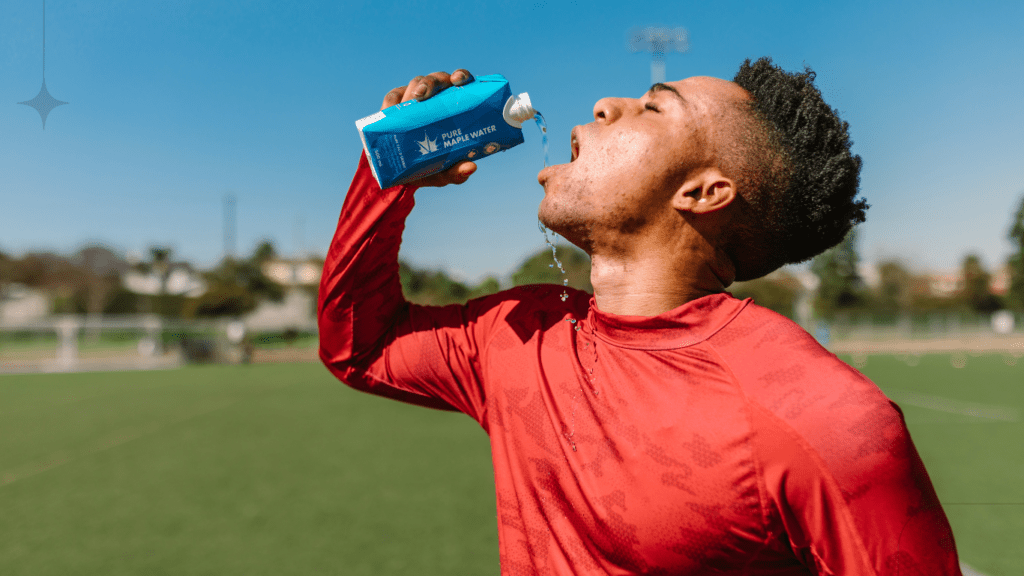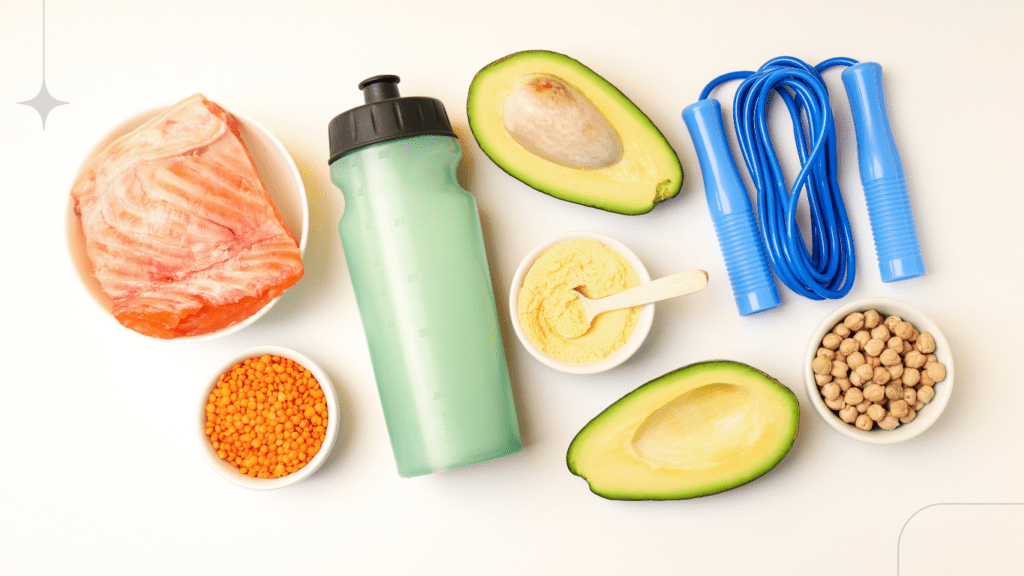As an athlete, fueling my body with the right nutrients is not just about staying healthy; it’s the key to reaching peak performance. Sports nutrition plays a crucial role in helping athletes like me excel in our respective disciplines. From enhancing endurance to promoting faster recovery, what we eat directly impacts our ability to stay at the top of our game.
In this article, I’ll delve into the world of sports nutrition, uncovering the secrets behind what fuels the bodies of elite athletes. Whether it’s optimizing macronutrient ratios, timing meals for peak performance, or choosing the right supplements, every bite we take is a step towards greatness on the field, track, or court. Join me on this journey to discover the science behind how athletes stay in prime condition through the power of nutrition.
The Importance of Sports Nutrition for Athletes
Sports nutrition plays a crucial role in helping athletes achieve peak performance. As an athlete, my nutrition directly affects my endurance, recovery, and overall ability to excel in my sport. In this section, I’ll delve into the key nutrients essential for peak performance and how nutrition significantly influences athletic success.
Key Nutrients for Peak Performance
As an athlete, ensuring I consume the right nutrients is vital for optimizing my performance. Here are some essential nutrients that play a key role in helping me stay at the top of my game:
- Protein: Protein is essential for muscle repair and growth. As an athlete, I make sure to include lean sources of protein like chicken, fish, and legumes in my diet to support my training and recovery.
- Carbohydrates: Carbs are the primary energy source for athletes. I focus on consuming complex carbohydrates such as whole grains, fruits, and vegetables to fuel my workouts and maintain energy levels.
- Healthy Fats: Fats provide long-lasting energy and support overall health. Including sources of healthy fats like avocados, nuts, and olive oil in my meals helps me maintain optimal performance.
- Hydration: Staying hydrated is crucial for athletic performance. I ensure I drink an adequate amount of water and electrolyte-rich fluids to prevent dehydration and maintain peak physical condition.
How Nutrition Impacts Athletic Success
Nutrition plays a pivotal role in determining an athlete’s success on the field or court. Here’s how nutrition can impact athletic performance:
- Energy Levels: Proper nutrition ensures that athletes have the energy they need to perform at their best during training and competitions. Consuming the right balance of nutrients fuels their efforts and enhances endurance.
- Recovery: Nutrient-rich foods aid in quicker recovery post-exercise by repairing muscle tissue and replenishing glycogen stores. This allows athletes to bounce back faster and be ready for the next training session or game.
- Immune Function: A well-rounded diet supports a strong immune system, reducing the risk of illnesses that could sideline an athlete. Nutrient-dense foods play a crucial role in keeping athletes healthy and in top form.
- Mental Focus: Proper nutrition not only impacts physical performance but also cognitive function. Eating a balanced diet rich in essential nutrients can sharpen an athlete’s mental focus, improving decision-making and overall performance.
By paying attention to my nutrition and ensuring I fuel my body with the right nutrients, I can optimize my athletic performance, speed up recovery, and maintain peak physical and mental condition to stay competitive in my sport.
Common Dietary Strategies for Athletes
When it comes to optimizing performance, athletes rely on specific dietary strategies tailored to their nutrition needs. Here are some key approaches that athletes often incorporate into their diets:
Macronutrients: Proteins, Carbs, and Fats
I focus on consuming a balanced mix of macronutrients to fuel my athletic endeavors. Proteins are essential for muscle repair and growth, while carbohydrates provide the energy needed for intense physical activity. Healthy fats play a crucial role in supporting sustained performance and overall health. By prioritizing the right balance of these macronutrients, I ensure that my body is equipped to meet the demands of rigorous training and competition.
Timing of Meals and Nutrient Intake
In my nutrition routine, timing plays a vital role in supporting optimal performance. I strategically plan my meals and nutrient intake around my training sessions and competitions. Consuming a balanced meal containing carbohydrates and proteins before exercise helps fuel my workouts, while post-workout nutrition focused on protein and carbohydrates aids in muscle recovery and replenishes energy stores. By paying attention to the timing of my meals and nutrient intake, I maximize the benefits of my dietary choices and support my athletic performance goals.
Hydration: The Role of Fluids in Sports Performance

Hydration is crucial for athletes as it plays a vital role in optimizing sports performance. Proper hydration strategies can significantly impact an athlete’s endurance, recovery, and overall well-being during training and competitions.
Effective Hydration Strategies
I always emphasize the importance of effective hydration strategies to fellow athletes. Ensuring adequate fluid intake before, during, and after exercise is key to maintaining optimal performance levels. Athletes should aim to hydrate consistently throughout the day and pay attention to their fluid intake not just during workouts but also in everyday activities to support their training goals.
Signs of Dehydration and How to Avoid It
Recognizing the signs of dehydration is essential for athletes to prevent performance setbacks. Symptoms such as dark urine, dizziness, fatigue, and muscle cramps indicate a lack of proper hydration. To avoid dehydration, athletes should prioritize regular water consumption, especially in hot and humid conditions or during intense training sessions. Incorporating electrolyte-rich drinks or foods can also help maintain the body’s fluid balance and enhance overall hydration levels.
Supplements and Performance Enhancers
When it comes to optimizing performance, athletes often turn to legal supplements that can enhance their abilities within the boundaries of regulations. It’s essential to understand the impact of these supplements on performance and how they can aid in achieving competitive edge while maintaining athletic integrity.
Legal Supplements That Improve Performance
Legal supplements play a significant role in supporting athletes’ performance by providing targeted nutrients that aid in muscle recovery, energy production, and overall endurance. Common legal supplements include:
- Whey Protein: Rich in essential amino acids, whey protein supports muscle repair and growth post-exercise.
- Creatine: Known for enhancing strength and power, creatine can improve performance in high-intensity activities.
- Caffeine: A stimulant that boosts focus and endurance, caffeine can be beneficial for prolonged and demanding training sessions.
- Beta-Alanine: Helps buffer lactic acid buildup, allowing athletes to sustain high-intensity efforts for longer durations.
- Branched-Chain Amino Acids (BCAAs): Assist in reducing muscle fatigue and improving muscle protein synthesis during exercise.
By incorporating these legal supplements into their nutrition plans, athletes can enhance their performance under the guidelines set by sports authorities.
The Dangers of Prohibited Substances
While legal supplements offer benefits to athletes, prohibited substances pose serious risks to both performance and reputation. Athletes need to be aware of the dangers associated with prohibited substances, including:
- Health Risks: Prohibited substances can have adverse effects on cardiovascular health, hormonal balance, and overall well-being.
- Ban from Competition: Testing positive for banned substances can lead to disqualification, suspension, and tarnishing of an athlete’s career.
- Legal Consequences: In some cases, the use of prohibited substances can result in legal implications and financial penalties.
- Ethical Considerations: Violating anti-doping regulations undermines the principles of fair play, integrity, and sportsmanship in competitive sports.
Athletes must prioritize their health, integrity, and long-term success by avoiding prohibited substances and focusing on legal, safe, and effective ways to optimize their performance and achieve their athletic goals.
Tailored Nutrition Plans for Different Sports
In the world of sports, nutrition plays a crucial role in optimizing performance and achieving peak athletic potential. Tailored nutrition plans that are specific to different sports can give athletes the competitive edge they need to excel in their respective disciplines. Let’s explore how nutrition differs based on the demands of endurance sports and strength and power sports.
Endurance Sports Nutrition
When it comes to endurance sports like marathon running, cycling, or swimming, athletes require a nutrition plan that sustains prolonged periods of physical exertion. In these disciplines, carbohydrates are essential as they provide a primary energy source for endurance activities. Athletes engaging in endurance sports often rely on complex carbohydrates like whole grains, fruits, and vegetables to fuel their performance and maintain glycogen stores for prolonged exercise.
Additionally, endurance athletes need to focus on proper hydration to replace fluids lost through sweating during extended training sessions or competitions. Electrolytes, such as sodium and potassium, play a vital role in maintaining fluid balance and preventing dehydration, especially in hot and humid conditions. Adequate hydration helps optimize performance and reduce the risk of fatigue and cramping during endurance events.
Strength and Power Sports Nutrition
In contrast, athletes involved in strength and power sports, such as weightlifting, sprinting, or powerlifting, have different nutritional requirements to support explosive movements and muscle recovery. Protein is a key component in the diet of strength and power athletes as it is essential for muscle repair, growth, and recovery after intense workouts.
Strength athletes often consume higher amounts of protein to support muscle development and repair, with sources like lean meats, poultry, fish, eggs, dairy, and plant-based proteins. Timing protein intake around training sessions is crucial for maximizing muscle protein synthesis and promoting muscle recovery and growth.
Moreover, strength and power athletes may benefit from incorporating creatine supplements into their nutrition regimen. Creatine is known for enhancing strength, power, and muscle mass gains in high-intensity, short-duration activities, making it a popular choice among athletes seeking to improve performance in explosive sports.
By tailoring nutrition plans to meet the specific demands of endurance sports or strength and power sports, athletes can optimize their performance, support recovery, and stay at the top of their game in their chosen disciplines.
Real-Life Diets of Top Athletes
I find it fascinating to explore the daily diets of elite athletes as they provide valuable insights into fueling performance and achieving peak results.
What Champions Eat in a Day
I’ve researched the eating habits of various top athletes to uncover what champions typically consume in a day. Here are some key components commonly found in their diets:
- Breakfast: Top athletes often start their day with a balanced breakfast consisting of complex carbohydrates, lean proteins, healthy fats, and fresh fruits or vegetables. This meal provides the necessary energy boost for their training sessions.
- Snacks: Athletes incorporate nutritious snacks between meals to maintain energy levels and support muscle recovery. These snacks usually include options like Greek yogurt, nuts, seeds, or protein bars.
- Lunch: Lunch for athletes typically includes a combination of lean proteins, whole grains, and a variety of colorful vegetables. This meal replenishes energy stores and aids in muscle repair after morning training sessions.
- Dinner: Athletes focus on a well-rounded dinner that includes lean proteins, healthy fats, and complex carbohydrates. This meal is essential for recovery and preparing the body for the next day’s training.
By following a well-balanced daily diet packed with essential nutrients, top athletes ensure they have the fuel needed to perform at their best consistently.
Diet Variations During Off-Season and Training Peaks
Athletes adjust their diets based on their training phases to optimize performance and achieve specific goals. Here’s how their nutrition plans may vary during the off-season and training peaks:
- Off-Season: During the off-season, athletes may focus on overall recovery, injury prevention, and building a strong nutritional foundation. They might include a slightly higher calorie intake to support muscle growth and repair.
- Training Peaks: As competitions approach, athletes might fine-tune their nutrition plans to fuel intense training sessions and optimize recovery. This phase often involves precise timing of meals and snacks to maximize performance gains.
By strategically adapting their diets to different phases of training, top athletes set themselves up for success and ensure they are always at the top of their game.

 David Fields is a dedicated contributor to Jackpot Joyfully, specializing in the intricacies of sports betting and casino games. With years of experience in the gaming industry, David provides readers with expert advice, detailed strategies, and the latest insights to help them make informed decisions. His commitment to fostering a fun yet responsible gaming environment shines through in every article he writes, making him a trusted voice for both new and experienced players.
David Fields is a dedicated contributor to Jackpot Joyfully, specializing in the intricacies of sports betting and casino games. With years of experience in the gaming industry, David provides readers with expert advice, detailed strategies, and the latest insights to help them make informed decisions. His commitment to fostering a fun yet responsible gaming environment shines through in every article he writes, making him a trusted voice for both new and experienced players.

